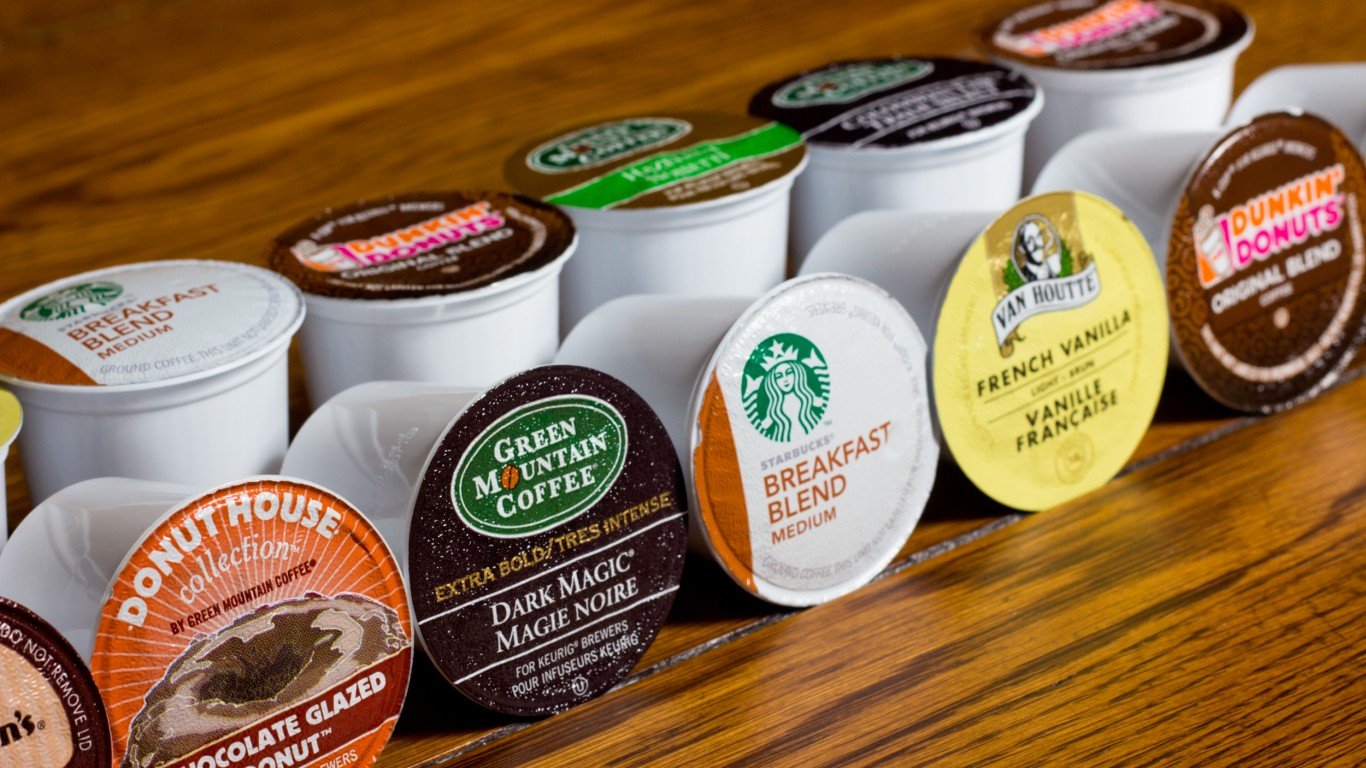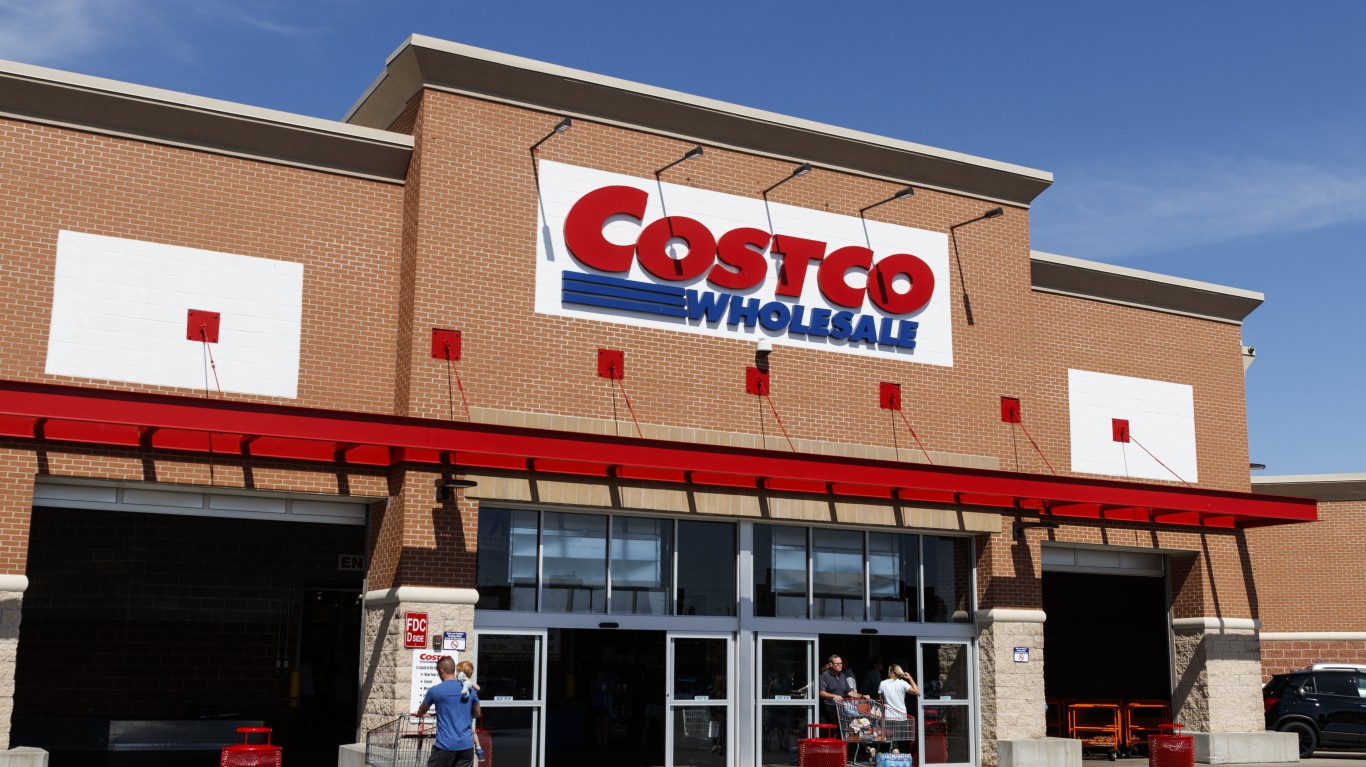

In the quest for the perfect cup of coffee, it’s just as important to know which brands to avoid as it is to know which ones to seek out. This detailed blog will examine a selection of coffee brands that, due to various reasons ranging from quality concerns to ethical issues, might be best left on the store shelves in 2023.
#1. Folgers

Folgers, once a symbol of American coffee culture, has seen its reputation tarnished by a series of questionable practices. Known for its pre-ground coffee, Folgers lacks organic options, leading to concerns about the freshness and quality of its brews. The absence of sustainability certifications raises questions about the brand’s commitment to ethical coffee sourcing and production methods. This shift from a beloved household name to a brand marked by shortcuts in quality and ethics is a warning to consumers seeking both quality and responsibility in their coffee choices.
Folgers Almost Caused a Civil War

In the 1990s, Folgers bought their unroasted coffee beans from El Salvador. At the time the coffee trade was largely unregulated and caused quite a stir in Latin American communities. Land owners got rich and the workers received almost nothing. This divided the people and civil unrest was rising. The people had called upon coffee companies to stop buying Salvadoran beans but Folgers refused until people boycotted their coffee.
#2. Death Wish Coffee

Death Wish Coffee has extremely high caffeine content, which presents a paradox in the coffee world for consumers to dislike this brand. While it boasts the use of fair trade USDA organic beans, there is little transparency regarding the origin of these beans, which are primarily sourced from India and Peru. The brand predominantly uses a blend of Arabica and Robusta beans, the latter often considered lower in quality compared to Arabica. Consumers have also reported issues with the oiliness of Death Wish’s whole-bean coffee, which can be problematic for standard home grinders. Additionally, the high price point, with a one-pound bag costing around $20, raises questions about its value for money.
High Caffeine Can be Dangerous

While small amounts of Caffeine can be beneficial, too much is a bad thing. According to Medline, too much of the stuff can lead to,
- Restlessness and shakiness
- Insomnia
- Headaches
- Dizziness
- Fast heart rate
- Dehydration
- Anxiety
#3 Green Mountain Coffee

Green Mountain Coffee’s decline in quality can be traced back to its acquisition and subsequent corporate direction shift. Originally celebrated for its independent, high-quality coffee, the company’s focus shifted towards cost-cutting and mass production following its takeover by JAB Holding.
Coffee Pods Full of Lies

This led to a suspected use of inferior coffee blends, especially in their widely used coffee pods. The shift from a quality-driven independent brand to a corporate, mass-producing entity disappointed many loyal consumers who valued the original artisanal approach of Green Mountain Coffee.
#4 Yuban
Yuban’s downfall in consumer preference is attributed to its recipe change. Previously known for using 100% Colombian beans, the brand shifted to a blend of Robusta and Arabica beans from unspecified Latin American regions.
Bad Beans for Bad Cups

This change, perceived as a move towards cheaper, lower-quality beans, resulted in a noticeable decline in taste and overall coffee quality. The lack of transparency and the deviation from its original Colombian coffee roots have led to a loss of trust and preference among its customer base.
#5 Nescafe
 Source: Thinglass / iStock Editorial via Getty Images
Source: Thinglass / iStock Editorial via Getty Images

Nescafé, despite its immense global presence, has significant problems. The brand’s failure to offer organic certified coffees, coupled with the potential for chemicals and mold in their products, is concerning to their consumers. Although Nescafé has partnerships with environmental groups, these efforts are overshadowed by the lack of emphasis on organic practices.
Not Fresh or Tasty

The focus on instant and ground coffee raises further questions about the freshness and overall quality of their offerings, making Nescafé a less favorable choice for those who prioritize both health and environmental considerations.
#6 Kirkland Signature

Kirkland Signature, the in-house brand of warehouse giant Costco, presents a key issue for coffee enthusiasts. While offering a diverse array of coffee products at attractive prices, Kirkland Signature’s coffee has sparked debate due to the opaqueness surrounding its bean sourcing.
Unknown Origin is Ripe For Problems

The brand seldom discloses specific information about where its coffee beans are sourced from, leaving consumers guessing about the origins, quality, and ethical standards of the beans used in their blends. This lack of transparency becomes a significant hurdle for those who value clarity and integrity in their coffee’s journey from farm to cup.
Essential Tips for Investing: Sponsored
A financial advisor can help you understand the advantages and disadvantages of investment properties. Finding a qualified financial advisor doesn’t have to be hard. SmartAsset’s free tool matches you with up to three financial advisors who serve your area, and you can interview your advisor matches at no cost to decide which one is right for you. If you’re ready to find an advisor who can help you achieve your financial goals, get started now.
Investing in real estate can diversify your portfolio. But expanding your horizons may add additional costs. If you’re an investor looking to minimize expenses, consider checking out online brokerages. They often offer low investment fees, helping you maximize your profit.
Thank you for reading! Have some feedback for us?
Contact the 24/7 Wall St. editorial team.




